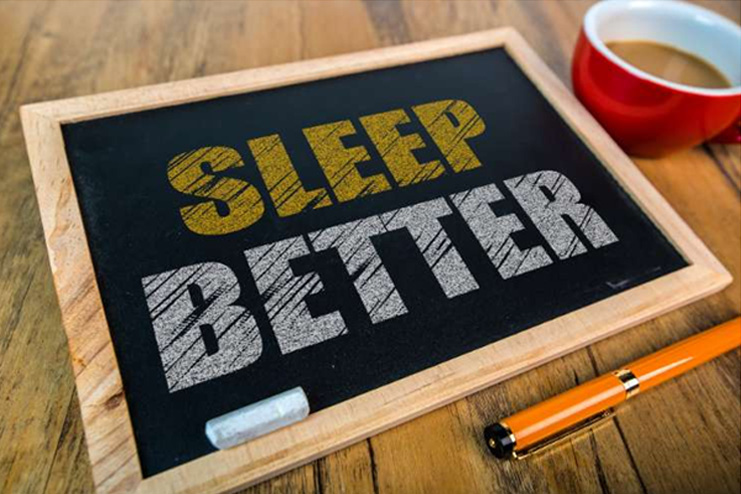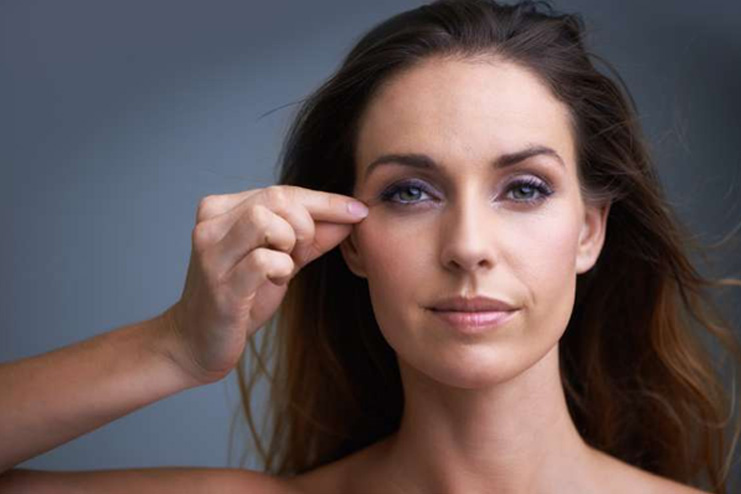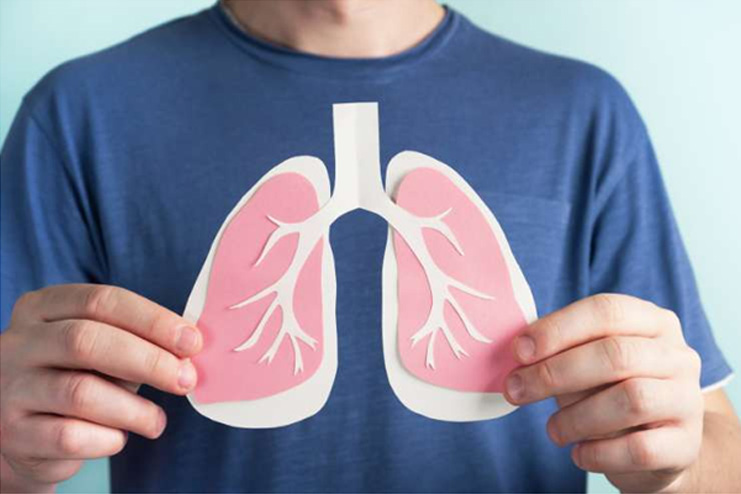Affiliate Disclaimer
Some links in this article are affiliate links. We may earn a small commission if you make a purchase through these links, at no extra cost to you. We only recommend products we find useful to our readersSweating is an essential physiological function that keeps our bodies balanced. Our bodies efficiently control body temperature by sweating, which keeps us from overheating when exercising or in hot environments. As perspiration leaves our skin, this natural mechanism helps us cool down, making us more comfortable and productive during various tasks. Sweating helps the body detoxify and eliminate waste items and regulates body temperature, promoting general health and well-being.
What Causes Sweating?

Sweating is a sophisticated physiological process that the autonomic nerve system of the body controls. Sweating starts when the brain senses hot spots or messages from emotional areas, which causes the hypothalamus to release endogenous heat.
Physiological Process: A saline solution mainly consisting of water, electrolytes, and trace amounts of metabolic waste is secreted by sweat glands dispersed throughout the skin. Sweat absorbs heat when it evaporates from the skin’s surface, causing the body to chill. To preserve a steady internal temperature, particularly when engaging in strenuous physical activity or being exposed to high outside temperatures, this evaporative cooling mechanism is essential.
Factors Influencing Sweating: Several things affect the quantity and pace of sweating. The body’s requirement for cooling is directly influenced by ambient temperature, with greater temperatures leading to more sweating. Sweat glands are stimulated to release more fluid while you exercise, which helps you stay cool. Emotions like worry or anxiety can also trigger sweating because sweating is the body’s autonomic nervous system’s reaction to emotional excitation. When these variables are understood, it becomes more apparent how sweating adjusts to changing physiological and environmental demands.
15 Health Benefits
1. Detoxification

Sweating expells toxins and heavy metals from the body through the skin’s pores. This process allows the body to rid itself of accumulated impurities due to environmental contaminants, drugs, and waste products produced by the metabolic process. By enhancing the operation of critical organs such as the kidneys and liver, which are essential for filtering and eliminating pollutants from the bloodstream, detoxification process helps to promote cleaner and improve the overall health of the body.
2. Skin Health

Increased circulation during sweating promotes a healthy complexion. This circulation gives oxygen and nutrients to the cells of the skin. In addition to reducing the likelihood of acne and other skin imperfections, sweating helps unclog pores by washing away the dirt, oil, and the dead skin cells. It can help lessen the appearance of acne. Additionally, the increased blood flow to skin’s surface while sweating encourages collagen formation, improving the skin’s flexibility and reducing wrinkles. This process results in the skin having a natural, radiant glow, reflecting its general health and vitality.
3. Weight Loss

By raising calorie expenditure and stimulating fat burning, sweating functions in weight loss. When combined with physical activity, sweating is a process that causes the body to waste energy to maintain its temperature, which can reduce the number of calories consumed. While sweating does assist in eliminating excess water weight, this effect is only transient and mainly affects hydration levels rather than fat loss directly. Sweating also helps eliminate excess water weight. Increasing total metabolic function and calorie consumption can benefit weight management when combined with a healthy diet and consistent physical activity. Sweating can help assist with weight control efforts.
4. Stress Relief

The production of endorphins, neurotransmitters that work as natural mood lifters, is triggered by sweating. These molecules, known as “feel-good,” reduce tension and anxiety, promoting relaxation and overall well-being. Regular involvement in activities that cause sweating, such as exercise or sauna sessions, can improve mental health by relieving stress and enhancing general emotional resilience. Examples of such activities are exercise and sauna sessions.
5. Immune System Boost

Through the process of draining off toxins and bacteria from the surface of the skin, sweating can assist in the strengthening of the immune system. Researchers have shown that antimicrobial peptides found in sweat possess antibacterial characteristics. These peptides have the potential to aid in the prevention of infections and to boost immune response. Sweating helps the body’s natural defensive mechanisms by removing pathogens through the skin’s pores. It helps to lower the risk of common illnesses and improve the general effectiveness of the immune system.
6. Cardiovascular Health

Maintaining a regular sweating routine benefits cardiovascular health since it enhances the heart’s function and circulation due to the release of heat that occurs during sweating; blood vessels expand, increasing blood flow efficiency and decreasing blood pressure. Through the enhancement of cardiac output and the support of normal vascular function, this cardiovascular training serves to lower the risk of cardiovascular disease and stroke.
7. Pain Relief

Through sweating, endorphins and other natural painkillers are released, providing relief from various pains. These pains include headaches, muscle tension, and joint soreness associated with illnesses such as arthritis. Endorphins have analgesic qualities, which means that they interact with the receptors in the brain and the spinal cord to reduce the sensation of pain. Individuals can relieve acute and chronic pain symptoms by generating sweating through physical exercise or exposure to heat. It can contribute to increased physical comfort and mobility.
8. Improved Sleep

The regulation of body temperature, which is crucial for obtaining more profound and more peaceful sleep, is facilitated by sweating through the process of sweating. Perspiring causes a steady fall in core body temperature, which signals the beginning of tiredness and relaxation. The body’s natural cooling systems accomplish this when sweating occurs. Sleep hygiene practices that are adequate, such as engaging in activities that cause perspiration earlier in the day, can assist in synchronizing circadian cycles and promoting more consistent sleep patterns. Sweating helps improve sleep quality, leading to overall well-being, cognitive function, and alertness during the day.
9. Cognitive Enhancement

When you sweat, your blood flow to the brain increases, improving your cognitive function and ability to remember things. Increased transport of oxygen and nutrients to brain cells enables neuronal plasticity, essential for learning, memory consolidation, and cognitive performance. It’s possible to improve mental clarity, concentration, and overall cognitive efficiency by participating in activities that cause sweating, such as cardiovascular activity or heat exposure.
10. Anti-Aging Benefits

Sweating helps maintain collagen levels in the skin, which decrease the appearance of wrinkles and fine lines. Collagen is a structural protein essential for the skin’s suppleness and firmness. Age and environmental factors can contribute to a decrease in collagen levels. Through increased blood flow and nutrient delivery, sweating promotes the renewal of the skin and a more youthful appearance. This is accomplished by encouraging the creation of collagen molecules. Activity that causes sweating, such as going to the sauna or exercising, can benefit the skin’s health since it increases natural collagen production and reduces the appearance of indications of premature aging.
11. Athletic Performance

The capacity for endurance, strength, and general athletic performance can all be improved via conditioning through sweating. When you exert yourself physically, sweating helps regulate your body temperature, preventing you from overheating and increasing your activity tolerance. Sweating benefits athletes’ endurance during prolonged physical activity by facilitating the efficient dissipation of heat and ensuring that adequate amounts of water are maintained. Over time, you can improve your cardiovascular fitness, muscular endurance, and athletic resilience by regularly engaging in activities that cause you to sweat. Some examples of such activities include aerobic exercise and sports training.
12. Metabolism Boost

Sweating is a metabolic stimulant since it increases the amount of energy expended and helps with digestion and the absorption of the nutrients. The thermogenic action of sweating compels the body to consume calories to maintain its temperature, which can help control weight and the efficiency of the metabolic process. Increasing one’s metabolic rate and promoting the efficient utilization of nutrients for energy creation can be accomplished by participating in activities that cause one to sweat, such as aerobic exercise or excessive exposure to heat. Sweat helps to facilitate the supply of nutrients to tissues and organs, promoting general metabolic health and vitality. It is accomplished via supporting metabolic activity.
13. Respiratory Health

Sweating helps open airways, enhancing respiratory function for people with asthma or allergies. The increased respiratory rate and depth during sweating contribute to better lung ventilation and enhance oxygen exchange. It allows for the alleviation of symptoms associated with respiratory congestion and the improvement of breathing efficiency. Aerobic exercise and heat treatment are two activities that can help support respiratory health by lowering inflammation and increasing airway clearance. Other activities that can help support respiratory health include heat therapy. Sweating can assist persons with respiratory disorders in better managing their symptoms and experiencing more respiratory comfort. This is because sweating improves lung function and oxygen delivery.
14. Hormone Regulation

Sweating clears excess hormones and maintains hormonal equilibrium. Hormones are involved in a very wide variety of physiological activities, including the regulation of mood, the function of reproduction, and metabolism. Sweating stimulates detoxification pathways, which aid in the metabolism and elimination of hormones. Participating in activities that cause sweating, such as exercising or being exposed to heat, can benefit endocrine function because it improves the regulation of hormones and promotes hormonal stability over time.
15. Social Benefits

Participating in activities that involve sweating in a group, such as participating in sports or fitness classes, encourages social interaction and community connection. Through participation in physical activities that cause people to sweat, participants are encouraged to work together, develop camaraderie, and support one another. The social engagement, communication skills, and interpersonal ties fostered through participation in group fitness classes or team sports can positively impact an individual’s well-being and mental health. Sweating in a social setting adds to favorable social dynamics, emotional resilience, and overall life satisfaction. It is because sweating helps to promote a sense of belonging and shared success.
Conclusion
There are several health benefits associated with sweating, which is a normal and healthy activity. Sweating has many health benefits, including improved skin health, detoxification, stress reduction, increased immunity, and cardiovascular advantages. Taking up sweat-producing activities, like working out or going to the sauna, can improve your physical, emotional, and social well-being. People can embrace the various health benefits of sweating and reap the advantages for their body and mind by learning about and embracing them. Accept sweating as a necessary natural process for optimum health and energy.
In this Article


















